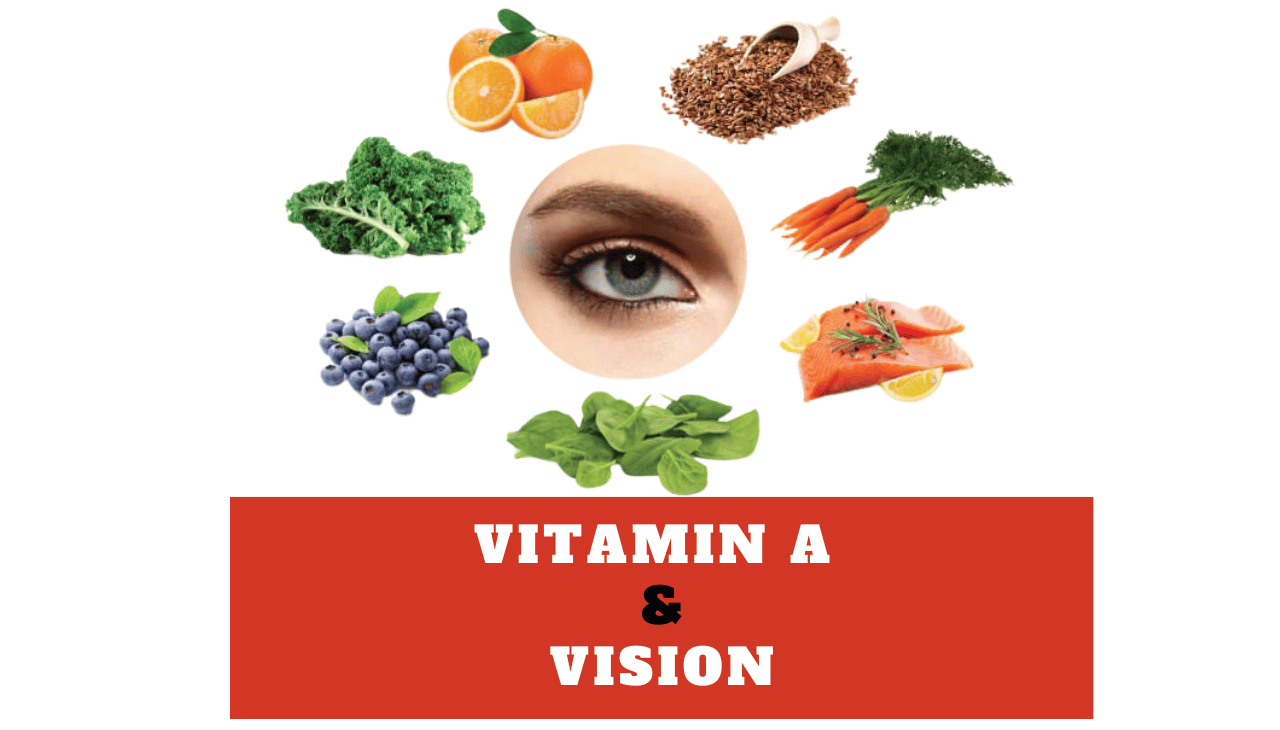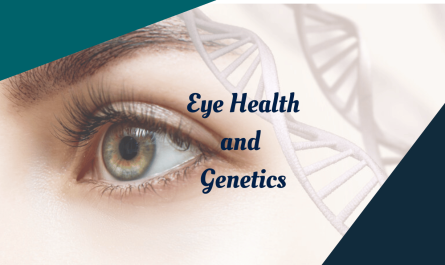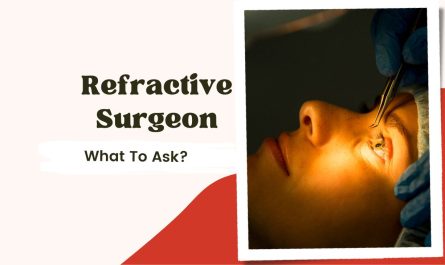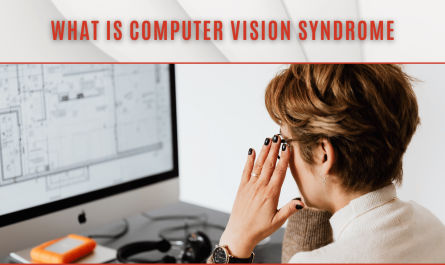Introduction : Vitamin A and Vision
Your eyes rely on more than just glasses or surgery. Nutrition matters too. One nutrient stands out when it comes to vision: Vitamin A.
Vitamin A plays a direct role in protecting your eyes. Deficiency can lead to night blindness, dry eyes, and more serious issues like corneal ulcers.
This blog will explain how Vitamin A improve your vision, what happens when you don’t get enough, and where to find it naturally.
What is Vitamin A?
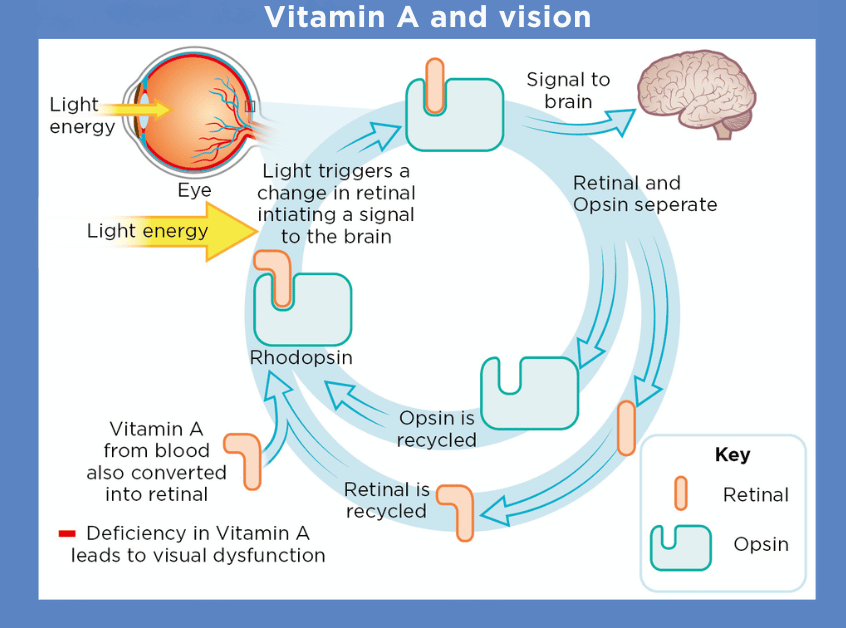
- A fat-soluble vitamin essential for healthy vision, immune system, and cell growth
- Comes in two forms:
- Retinol (preformed vitamin A): Found in animal-based foods
- Beta-carotene (provitamin A): Found in colorful fruits and vegetables
How Vitamin A Helps Your Eyes
- Maintains the health of your cornea
- Supports night vision by aiding the production of rhodopsin
- Keeps eyes moist and prevents dryness
- Protects against infections by supporting surface tissues
Signs of Vitamin A Deficiency
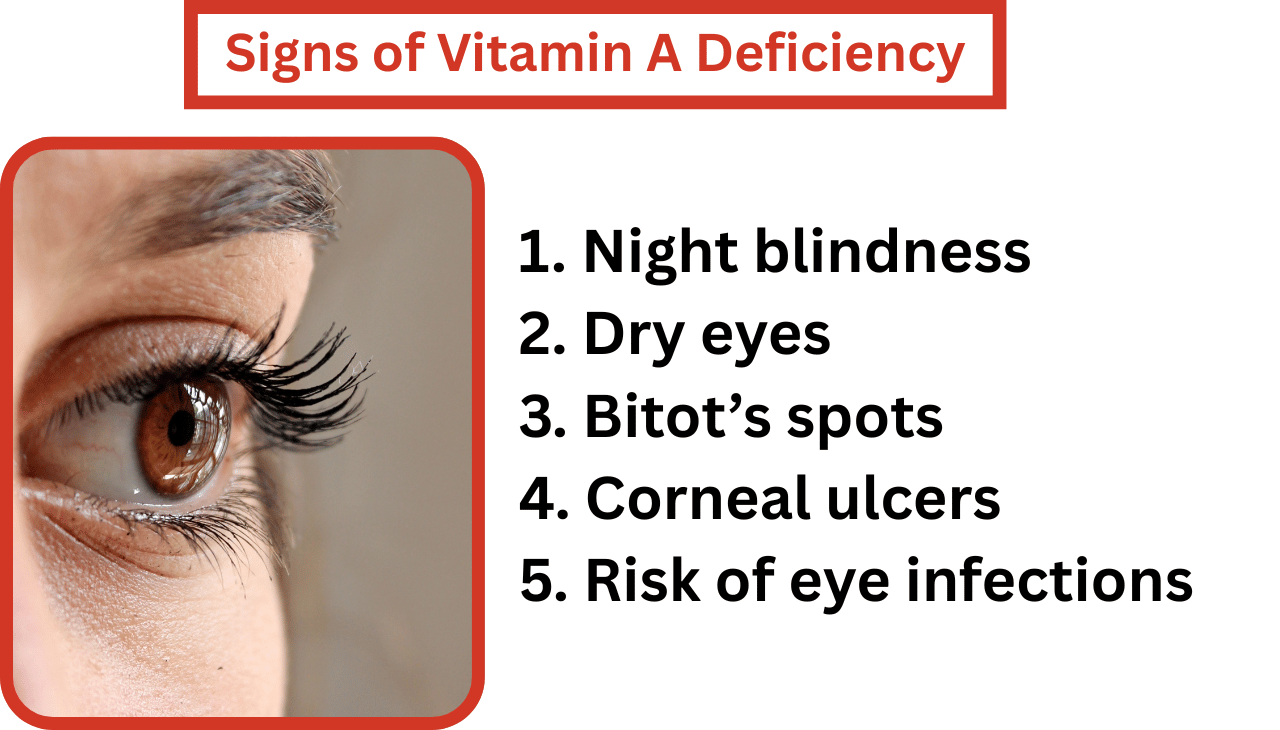
- Night blindness: Difficulty seeing in low light
- Dry eyes: Lack of tear production, leading to discomfort
- Bitot’s spots: Foamy patches on the whites of the eyes
- Corneal ulcers: Can cause vision loss if untreated
- Increased risk of eye infections
Causes of Vitamin A Deficiency
- Poor diet lacking in vegetables or animal products
- Medical conditions that affect fat absorption (e.g., celiac, liver disorders)
- Alcoholism or malnutrition
Natural Sources of Vitamin A
- Animal-based (Retinol):
- Liver
- Eggs
- Dairy (cheese, milk, butter)
- Plant-based (Beta-carotene):
- Carrots
- Sweet potatoes
- Spinach
- Kale
- Mangoes
How Much Vitamin A Do You Need?
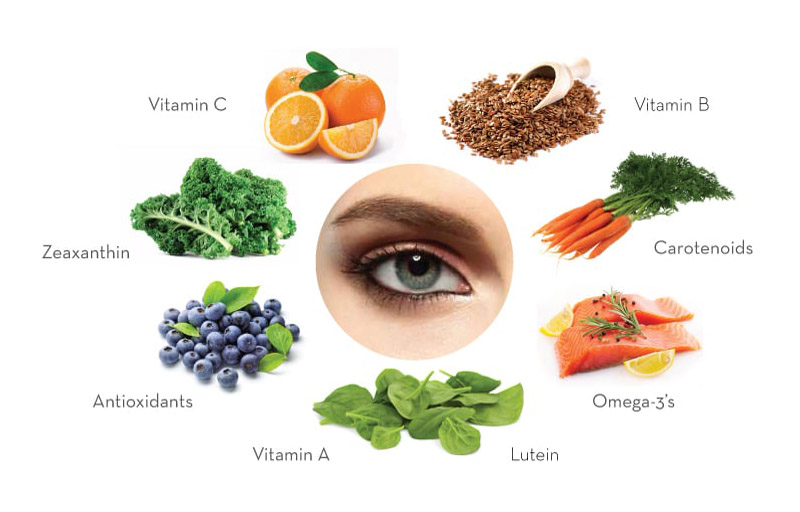
- Adults:
- Men: 900 mcg/day (RAE)
- Women: 700 mcg/day (RAE)
- Children and pregnant women require different amounts
- Over-supplementation can be harmful, especially from animal-based sources
Can Supplements Help?
- Useful in cases of deficiency
- Should only be taken under medical supervision
- Food-first approach is safer for most people
Eye Conditions Linked to Vitamin A
- Xerophthalmia: Severe deficiency condition causing dryness and damage
- Age-related macular degeneration (AMD): Antioxidants like beta-carotene may slow progression
- Cataracts: Antioxidants play a supportive role
Who is at Risk?
- Young children in developing countries
- Elderly with poor diet
- People with chronic illnesses affecting digestion
- Vegans or strict vegetarians not eating fortified foods
Tips to Protect Your Vision Through Diet
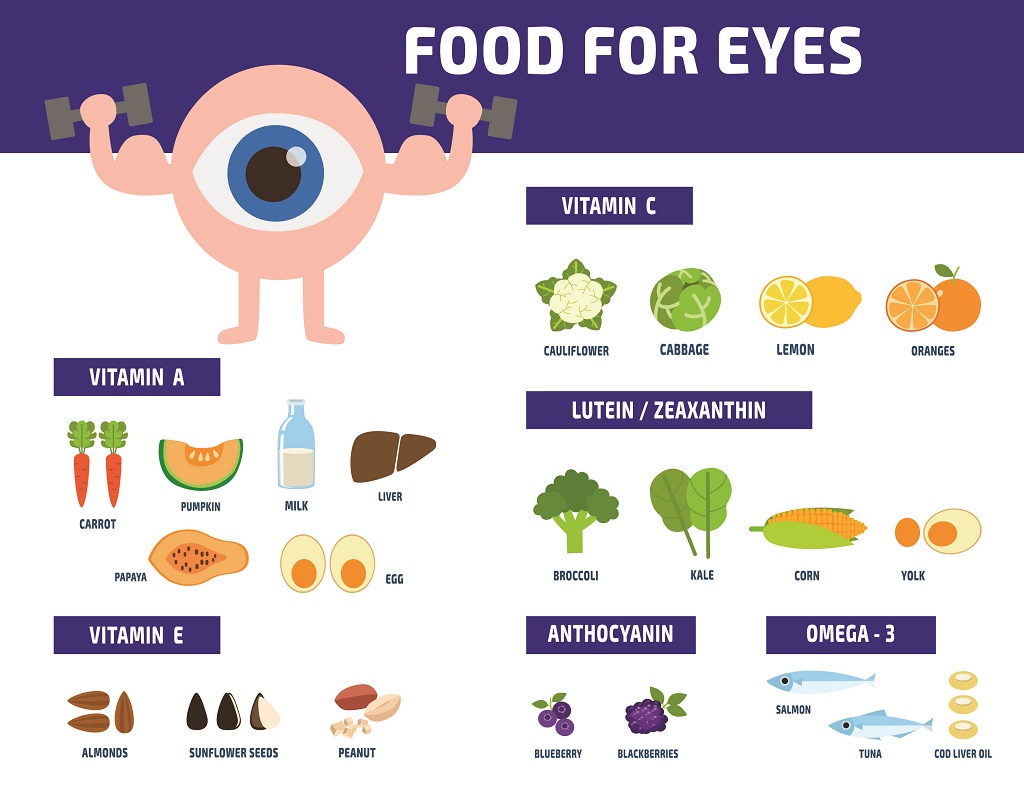
- Eat a variety of colorful vegetables daily
- Include dark leafy greens and orange vegetables
- Add healthy fats like nuts and seeds to help absorb vitamin A
- Limit alcohol and processed foods
Consult the Experts at Laxmi Eye Institute
Laxmi Eye Hospital is one of the largest chains of eye hospitals in Mumbai. For over 30 years, it has provided trusted eye care through expert ophthalmologists and advanced treatment facilities.
The hospital is known for transparency, ethical care, and comprehensive treatment under one roof. Services include Specs Removal / LASIK (Bladeless LASIK, ICL and IPCL, Contoura Vision LASIK), Cataract, Glaucoma, Diabetic Eye, Cornea Clinic, Retina Treatment, and Pediatric Ophthalmology.
Laxmi Eye Institute has trained hundreds of ophthalmologists in its long-running surgical fellowship programs in SICS and Phacoemulsification.
Visit Our Clinics:
Dombivli: Laxmi Eye Clinic (Dombivli) 1st Floor, SS Business Park, Gharda Circle, Azde Gaon, Dombivli East, Maharashtra 421201
Kharghar: Laxmi Eye Clinic (Kharghar) Office 108-110, 1st Floor, Anant CHS, Sector 04, Navi Mumbai, Maharashtra 410210
Panvel: Laxmi Eye Hospital & Institute (Panvel) Mulla Hamid Rd, Old Panvel, Navi Mumbai, Maharashtra 410206
Kamothe: Laxmi Eye Institute (Kamothe) Shop 26/27, Near ICICI Bank, Pratik Gardens, Sector 34, Kamothe, Maharashtra 410209
Book Your Consultation: Visit or call the respective clinic to book an appointment.
FAQs
1. Can a lack of Vitamin A cause permanent vision loss? Yes, severe deficiency can lead to corneal damage and blindness if untreated.
2. Is it better to take Vitamin A supplements or eat food rich in it? Food sources are safer. Supplements should only be used when prescribed.
3. Can eating carrots really improve eyesight? Carrots are rich in beta-carotene, which supports eye health, especially in low-light conditions.
4. Is too much Vitamin A harmful? Yes. Overconsumption, especially from supplements or liver, can cause toxicity.
5. How do I know if I’m deficient in Vitamin A? Symptoms like dry eyes, night blindness, or frequent infections could indicate deficiency. Blood tests can confirm.
6. Can children take Vitamin A supplements? Only if prescribed by a pediatrician, especially in cases of malnutrition.
7. Is LASIK affected by Vitamin A levels? Healing from surgery can be affected by nutritional status, including Vitamin A.
Final Thoughts
Vitamin A plays a critical role in preserving your vision. A balanced diet rich in natural sources is your best defense against deficiency.
If you notice changes in your vision or eye comfort, consult a professional. Laxmi Eye Institute is equipped to support your eye health at every stage of life.

